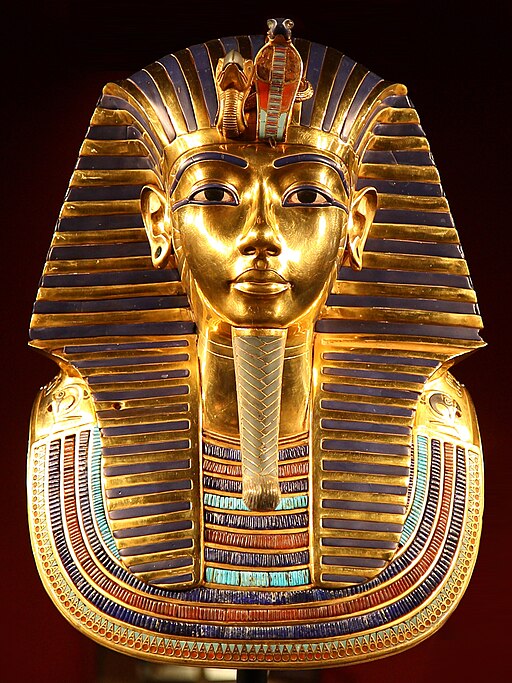
The Galleria Borghese is an art gallery in Rome, housed in the former Villa Borghese Pinciana. The Galleria Borghese houses the Borghese collection of paintings, sculptures, and antiquities, begun by Cardinal Scipione Borghese, the nephew of Pope Paul V (reign 1605–1621).
The Villa was originally designed and used as a country villa at the edge of Rome.
Scipione Borghese was an early patron of Bernini and an avid collector of works by Caravaggio, who is well represented in the collection.
Other paintings of note include Titian, Raphael, Peter Paul Rubens, and Federico Barocci. The Galleria Borghese includes twenty rooms across two floors.
The Villa Borghese gardens are a separate tourist attraction with its separate ticketing and entry requirements.
Also nearby is the Galleria Nazionale d’Arte Moderna, which specializes in 19th- and 20th-century Italian art, and Museo Nazionale Etrusco, a collection of pre-Roman objects, mostly Etruscan, excavated around Rome.
A Virtual Tour of the Galleria Borghese
- “Truth Unveiled by Time” by Bernini
- “Apollo and Daphne” by Bernini
- “David” by Bernini
- “The Rape of Proserpina” by Bernini
- “Pauline Bonaparte as Venus Victrix” by Antonio Canova
- “Leda and the Swan” After Leonardo da Vinci, Attributed to Il Sodoma
- “Amor and Psyche” by Jacopo Zucchi
Highlights of the Galleria Borghese
“Apollo and Daphne” by Bernini
“Apollo and Daphne” by Bernini depicts a critical point in the story from ancient Greek mythology, retold by Hellenistic and Roman authors in the form of an amorous vignette.
The story starts with Apollo, the Greek god, and patron of archery mocking the god of love, Eros (Cupid), for his use of bow and arrow.
The insulted Eros then prepared two arrows, one of gold and one of lead. He shot Apollo with the gold shaft, instilling in the god a passionate love for the river nymph Daphne. He shot Daphne with the lead arrow, instilling in her a hatred for Apollo.
“David” by Bernini
“David” by Bernini is a life-size marble sculpture depicting the biblical David, about to throw the stone that will bring down Goliath, whom he then beheads.
Compared to earlier works on this subject such as the David of Michelangelo, the sculpture broke new ground in its sense of movement and its psychological intensity.
This sculpture shows a key event from the Old Testament during the war between the Israelites and the Philistines.
Goliath was the battle champion of the Philistines, and he challenged the Israelite army to settle the conflict by single combat.
David is a young shepherd who has gained fame as the king’s musician but accepts the challenge when no one else steps forward to defend the Israeli cause.
“The Rape of Proserpina” by Bernini
“The Rape of Proserpina” by Bernini depicts the Abduction of Proserpina, who is seized and taken to the underworld by the god Pluto.
Pluto was the ruler of the underworld in classical mythology. The Greek mythological name for this god was Hades, which became more common as the name of the underworld itself.
In the myth, Pluto abducts Persephone to be his wife and the queen of his realm. The story of the Abduction of Proserpina is told in the Homeric Hymn to Demeter.
In the ancient story, Zeus, King of the Gods, permitted Hades, who was in love with the beautiful Persephone, to abduct her as her mother Demeter was unlikely to allow her daughter to go down to Hades.
Persephone was gathering flowers in a field when Hades came to abduct her, bursting through a cleft in the earth.
“Truth Unveiled by Time” by Bernini
“Truth Unveiled by Time” was created by Bernini in marble, showing “Truth” allegorically as a naked young woman being unveiled by a figure of “Time” above her. Still, the figure of “Time” was never executed.
The female figure is holding the sun in her hand and represents naked “Truth” as her drapery appears to be leaving her body by the invisible hand of “Time.”
Bernini wanted to add the figure of “Time” to the grouping, but time seems to have beaten Bernini, as he never completed his plan.
“Pauline Bonaparte as Venus Victrix” by Antonio Canova
“Pauline Bonaparte as Venus Victrix” by Antonio Canova is a life-size reclining neo-Classical portrait sculpture reviving the ancient Roman artistic traditions of portraying mortals in the guise of the gods, and in depicting the female form reclining on a couch.
Canova was initially commissioned to depict Pauline Bonaparte fully clothed as the chaste goddess Diana, but Pauline insisted on Venus.
Pauline Bonaparte had a reputation for promiscuity and may have enjoyed the controversy of posing naked.
She also holds an apple in her hand, evoking Aphrodite’s victory in the “Judgement of Paris,” the story in which the golden apple was awarded to the most beautiful goddess.
“Leda and the Swan” After Leonardo da Vinci, Attributed to Il Sodoma
“Leda and the Swan” after Leonardo da Vinci, is attributed to Il Sodoma and depicts the mythological story of Leda and the Swan.
This famous painting was for three hundred years thought to be a copy by Sodoma. Its attribution is still doubtful, but research into wills, now suggest that an unfinished version of this painting was in Leonardo’s house at the time of his death in 1519.
It was inherited by one of Da Vinci’s pupils who later reworked it.
“Amor and Psyche” by Jacopo Zucchi
“Amor and Psyche” by Jacopo Zucchi depicts the night when Psyche brings out a dagger and a lamp she had hidden in the room to see and kill the monster that makes love to her but demands that he stays hidden in the dark.
But when the light instead reveals the most beautiful creature she has ever seen, she is so startled that she wounds herself on one of the arrows in Cupid’s cast-aside quiver.
Struck with a burning passion, Psyche spills hot oil from the lamp and wakes Cupid. Once Psyche has broken her commitment, he flees, and though she tries to pursue, he flies away and leaves her.
Galleria Borghese
- Museum: Borghese Gallery
- Italian: Galleria Borghese
- City: Rome
- Country: Italy
- Established: 1903
- Type: Art museum
- Address: Villa Borghese, Rome, Italy
A Virtual Tour of Museums in Italy
Rome Museums and Historical Sites
- The Vatican Museums
- Capitoline Museums
- St. Peter’s Basilica
- National Roman Museum
- Galleria Borghese
- Villa Farnesina
Florence Museums
- Uffizi Gallery
- Accademy’s Gallery
- Palazzo Pitti
Milan Museums
- Santa Maria Delle Grazie
- Sforza Castle Museums
- Brera Art Gallery, Pinacoteca di Brera
- Museo Poldi Pezzoli
Bologna Museums
- The Archaeological Civic Museum (MCA) of Bologna
- Sanctuary of Santa Maria della Vita
Venice Museums
- Gallerie dell’Accademia
Map for the Galleria Borghese
Borghese Gallery in Rome -Top 20 Must See Art Works
ROME – Borghese Gallery
Rome, Italy: Borghese Gallery
~~~
“It is better to create than to learn! Creating is the essence of life.”
– Julius Caesar
~~~
Photo Credit: Mister No [CC BY 3.0 (https://creativecommons.org/licenses/by/3.0)]
Popular this Week








 Sponsor your Favorite Page
Sponsor your Favorite Page SEARCH Search for: Search Follow UsJoin – The JOM Membership Program
Sponsor a Masterpiece with YOUR NAME CHOICE for $5
Share this:
- Tweet
